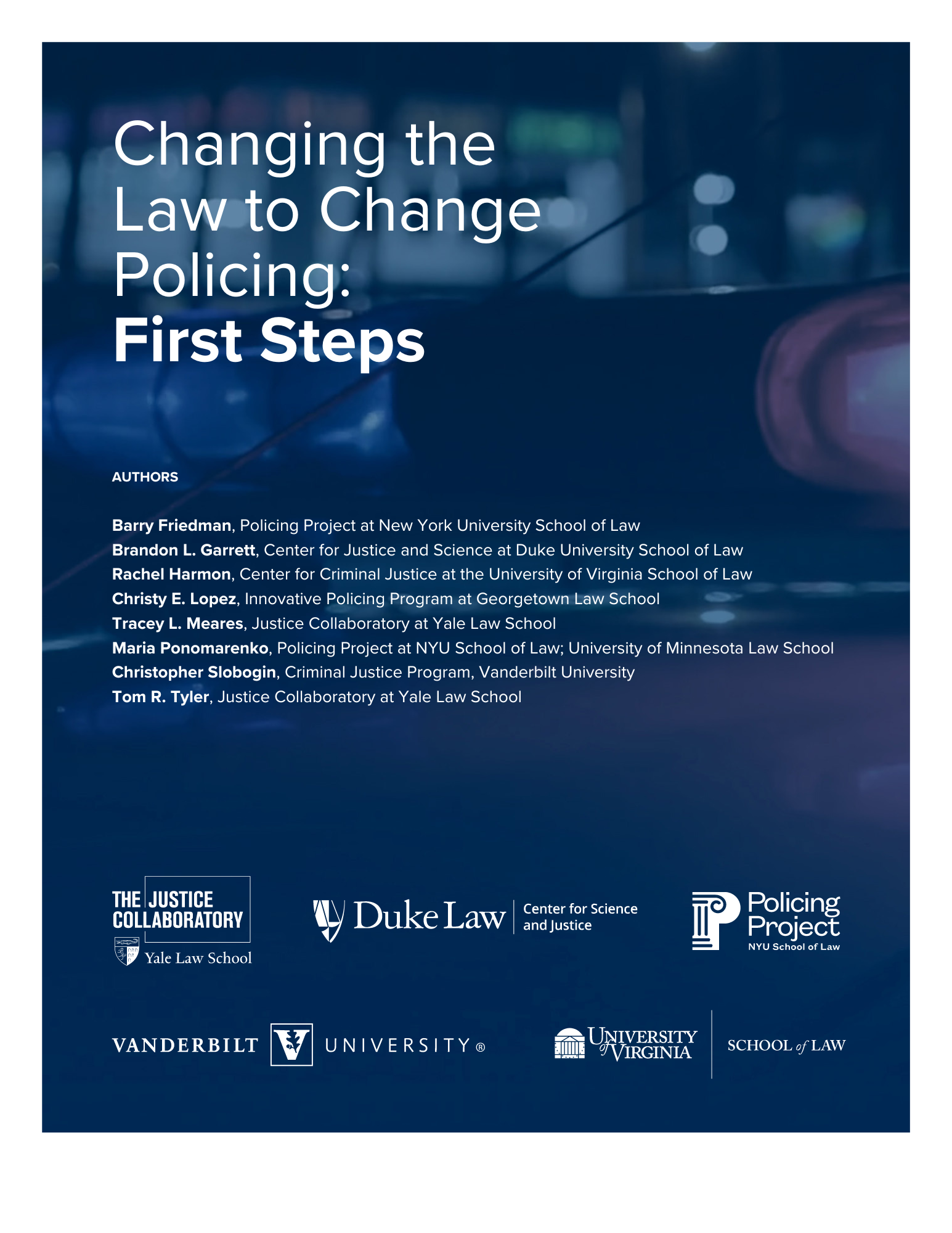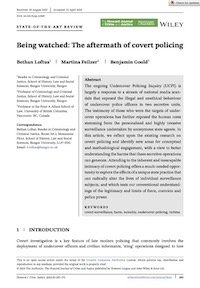By Alissa Pollitz Worden, Beau Holladay, Morgan Madison, James Miller, Kaitlin Moloney
In April 2019 the New York State Legislature passed a suite of criminal justice that went into effect on January 1, 2020. The reforms included significant changes in police officers’ discretion to make custodial arrests, which lead people to be detained for up to 24 hours by law (and longer for those arrested on weekends or holidays in some counties). In almost all misdemeanors and many Class E felonies, the new law directed police to issue desk appearance tickets (DATs), which allow people to return home and appear for their arraignment at a later date. The same set of reforms also restricted judges’ discretion in setting bail or detaining people at arraignment; they were directed to release people under recognizance, supervision, or conditions on most cases involving misdemeanor and non-violent felony charges. In this report we examine the implementation and impact of DAT reform in a sample of New York’s Town and Village Justice Court jurisdictions. The state’s approximately 1,200 Justice Courts were established in counties’ suburban and rural towns outside incorporated cities. Justice Courts perform the same functions as City Courts: arraignment of felony, misdemeanor, and violation charges arising within their geographic boundaries, bail and release decisions in those cases, and adjudication and sentencing in misdemeanor and violation charges. This report investigated the use of DATs in sample of arrests made in Justice Courts located in six counties: two largely suburban counties that include mid-sized cities, and four largely rural counties that are each home to one or two small cities. Our analysis of arrests and DAT issuance rates from 2018 to 2022 suggests the following. Contextual Changes in Arrests and the Composition of Charges • Declining Arrests in the 6 Counties Studied: The numbers of arrests in all classes of offenses declined from 2018 to 2022. The decline in arrests during 2020 was followed by a rebound in 2021; yet when arrest rates largely stabilized in 2021 and 2022, they did so at levels significantly lower than in 2018. This decline was most marked in misdemeanor arrests. • Small Number of Common Charges: A small number of specific offense charges (13) account for about 75% of all arrests. Among misdemeanors in particular, the most common arrest charges in these suburban and rural jurisdictions were driving while intoxicated (40%), drug possession (16%), and petty larceny (9%). Changes in DAT Issuance • Lack of Apparent Changes Linked to Reform: Despite the intent of DAT reform, there is little evidence of an overall increase in DAT issuance in misdemeanor arrests – about 75% resulted in a DAT across all 6 counties throughout the 2018-to-2022 study timeframe. However, DAT rates in Class E felonies (a target of reform) and Class D felonies (not a target of reform) both increased substantially over time. These increases in DAT use in E and D felonies appear to have begun prior to January 2020 – raising the possibility that pre-existing trends of fewer custodial arrests, and not the DAT reforms per se, may largely explain these patterns. • Results Varied by County: Context matters. The six counties demonstrated different patterns of DAT usage. In misdemeanor arrests, DAT rates increased (albeit modestly) in three counties, decreased in one county, and remained stable in the other two counties. Overlapping Policy Changes Ensuring Access to Counsel in Justice Courts: DAT reform took effect in the midst of another statewide reform: ensuring the presence of counsel at arraignment in all courts. Prior to 2016, and as a result of their often non-regular, impromptu scheduling of arraignments, many and perhaps most custodial arrest arraignments in Justice Courts were conducted without the presence of a defense lawyer, a prosecutor, or both. In 2015, the final settlement of the landmark case Hurrell-Harring v. State of New York established the principle that the 6th Amendment right to counsel includes the right to an attorney at arraignment. The result was an imperative that courts find ways to ensure not only that arrested persons were arraigned in a timely fashion, but also that they had access to counsel at first appearance (CAFA). In principle, that imperative applied to all arraignments, whether they occurred in the aftermath of a custodial arrest or a DAT. In Justice Courts, right to counsel reforms and DAT reforms may work at cross-purposes. From 2016 to 2022, Justice Courts in 26 counties established centralized arraignment parts, which meet daily in a single location to arraign custodial arrest cases from all Justice courts, with defense lawyers deployed to each arraignment session. For security reasons, these sessions are typically held in the visiting rooms of county jails. While these sessions safeguard the constitutional right to representation at first appearance in court, they may also result in several hours of detention for people who must wait in the jail until the court session convenes. Notably, these people may include individuals for whom bail reform prescribes pretrial release in lieu of detention. Thus, centralized arraignment courts are a novel strategy to advance the right to counsel in rural areas, but they may inadvertently result in pre-arraignment detention. Summary The findings in this report indicate that DAT reform produced some of the outcomes that were expected in some counties. However, overall misdemeanor DAT rates did not change consistently across Justice Courts in the six counties studied. Class E and especially D felony DAT rates began to steadily increase months before DAT reform went into effect. Moreover, had DAT reforms produced its intended larger effect on DAT rates, it may have had unintended consequences. For example, county strategies to ensure legal representation at Justice Court arraignments, begun several years before the 2020 reforms, may inadvertently result in pretrial detention as individuals must wait for centralized arraignment sessions in detention. But these same county strategies represent a solution to what had previously been the inconsistent provision of counsel. Further research is needed to (1) expand the scope of data collection in sampled counties to follow trends beyond the early implementation and pandemic time periods, (2) further assess the magnitude of detention associated with centralized arraignment parts, and (3) investigate the adaptations that local practitioners have made to optimize the impact of the reforms.
Albany, NY: John J. Finn Institute for Public Safety, Inc., 2024. 36p.










